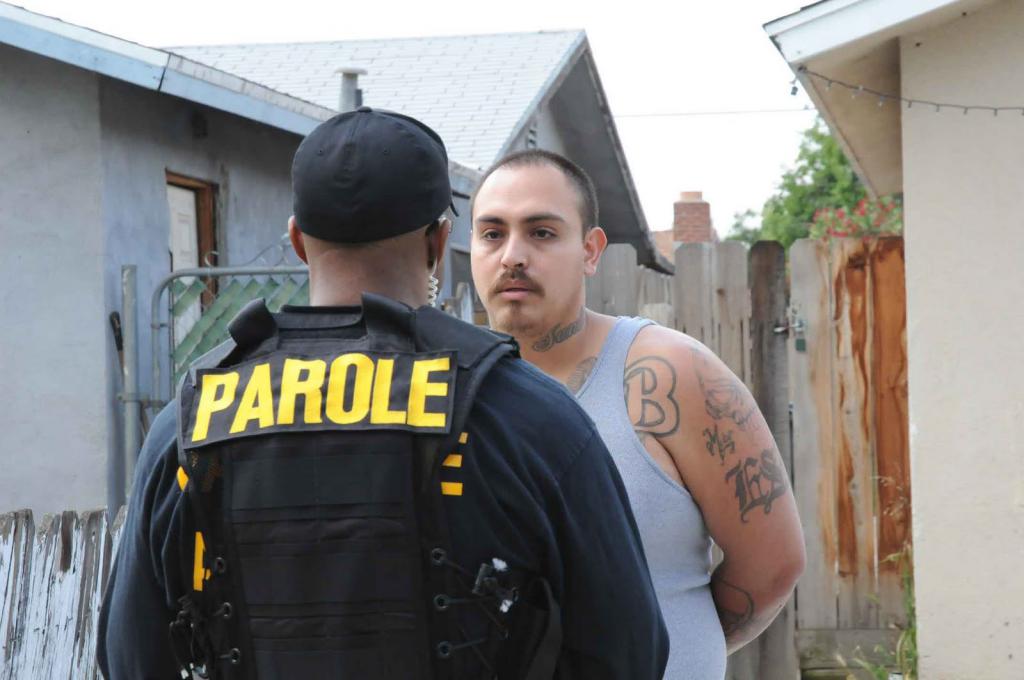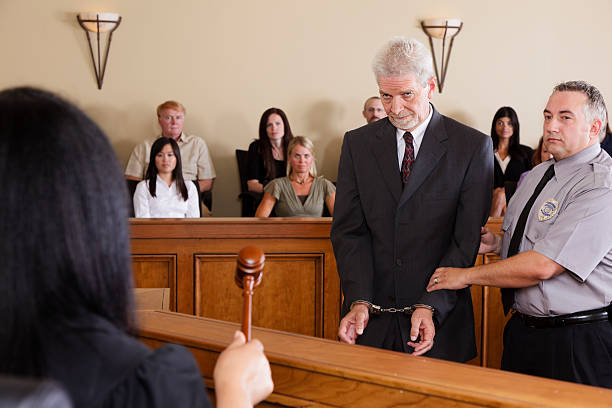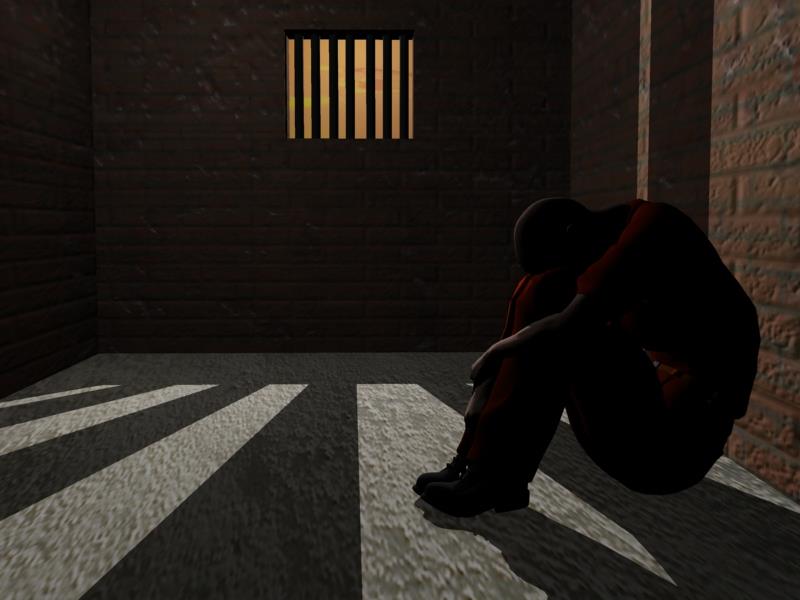For any act, but only if the guilt of a person is fully proved, it remains to be answered. If the court finds the person guilty and determines the measure of punishment, then it takes into account how much the public has suffered from the deed, the identity of the perpetrator, mitigating circumstances must be taken into account. Detention or conditional imprisonment may be imposed as punishment.
Conditional period: what is it?
The conditional conviction may be received by the accused, who does not have to be isolated from society. He is not dangerous to those around him and he can atone for his deed if he will strictly comply with all the requirements for discipline and socialization during the period that he was awarded by the court. In the criminal legislation of the Russian Federation, conditional imprisonment can be determined in different ways:
- The period of a special postponement of the sentence.
- Methods of special education for a person who violated the law in order to direct him on the right path.
- The release of the person who committed the act from his actual detention.
- A special type of punishment in relation to a person who committed an act, but its execution is not implied.
Following the Criminal Code, the implementation of probation must be defined as punishment. This fact is supported by the fact that it was introduced in chapter 10 of the “Appointment of Punishment”, and not in chapter 12 of “Release from punishment”.
Dates and types
There are several types of suspended sentences that can be distinguished in accordance with the methods of punishment by which they are replaced. Simply put, conditional punishment can be applied in the following forms:
- correctional work;

- restrictions on military service;
- restrictions on individual freedom;
- disciplinary punishment;
- conclusion for a fiscal term.
In most cases, a suspended sentence is set as a compulsory limitation of communication with society for a certain period of time, as reported in Article 73 of the Criminal Code of the Russian Federation. But it is not always possible to apply the conditional punishment option, for example, it is not used if the term for the crime exceeds 8 years due to the fact that it is the most serious.
When can conditional punishment be applied?
Conditional punishment can be applied only in a few cases and for this personal qualities must be taken into account, in particular:
- The correct behavior of a person in the period that precedes and after the deed.
- The presence of people who are dependent on the defendant.
- If the culprit voluntarily repented of his misconduct.
- If he did everything possible to help the authorities solve the crime and help him find the culprit.
- If it is positively characterized at work or at the place of study.
- Poor health or the accused has a predisposition to develop ailments affecting the lungs.
- Young or old age.

If the accused has one or more extenuating circumstances, then the court is able to sentence him to probation. A convicted person can count on this type of punishment if he has not done too heavy, he is brought in for the first time, repented and obeyed.
Although there is no such wording in the Criminal Code of the Russian Federation, and no one denies that even during the commission of a serious crime, the accused can receive a suspended sentence, but the judiciary never makes such decisions. Sentence - imprisonment conditionally cannot be imposed in such cases:
- If a person persuaded a minor to have sexual intimacy, and also introduced him to depraved acts, engaging in prostitution and pornography.
- For any actions related to terrorism.
- For acts with grave consequences committed while serving a sentence for previously committed in a conditional form or part of the actual punishment after parole.
- If a person repeatedly committed a crime that poses a danger to others.
Only the court, taking into account all the facts, can establish a conditional or real sentence. If there is even the slightest doubt, the court may appoint a defendant a probationary period, which will make it clear whether the punishment was correctly assigned or should still be taken into custody.
What are the features of the trial period?
Imprisonment on probation with a probationary period helps to assess objectively whether a sentence was correctly pronounced. The court sets a certain period of time during which close monitoring of the executive service is conducted for the convicted person. If during this period the convicted person commits an administrative or criminal offense, violates the established regime or performs violations prohibited by his sentence, his suspended sentence may become real.
Reasons for increasing the trial period
There can be several reasons for making such a decision:
- if the defendant does his best to evade the performance of duties that were imposed by a suspended sentence;
- if the convicted person committed another crime, public order was violated, but the punishment was administrative;
- if the convicted person did not want to indemnify the injured party in full or at least partially.

In all these cases, the inspector, who monitors the execution of the suspended sentence, may ask the court to extend the probationary period, but there is also a restriction here: it is allowed to renew for no more than a year. This is done in order to still have the opportunity to observe the convict and after that make the final decision.
What are the restrictions?
Conditional term - is it imprisonment or not? This question is asked by many people who have little knowledge of the law. A suspended sentence is one of the types of punishment in which a person remains at large, but has a number of social restrictions.
- In accordance with article 32 of the Constitution of the Russian Federation, persons who have been given suspended sentences cannot participate in elections, as well as those who are serving their sentences in places of detention. They do not have the right to stand for election.
- Before the conditional sentence is over, the convict has no right to leave the territory of Russia, only in this way he will fulfill the requirements of No. 114-F3.
- The presence of a conditional criminal record is not considered a reason to refuse a person a job, but there are exceptional cases, for example, you can’t hold positions in law enforcement and civil service. If for any reason an employee of law enforcement bodies or administration was convicted, then he will have to write a letter of resignation, because these bodies do not allow the presence of employees who have committed an offense in their ranks.
How should conditional sentences be executed?
Conditional imprisonment is an extraordinary way to introduce a stumbled person to a normal life in a society where all the rules of behavior and relationships with other people will be observed, as well as necessarily with the implementation of a socially significant function. In principle, the life of a person sentenced to a suspended sentence differs little from the life of others. The only exception is that he will have to comply with some requirements and rules, and without this he will not be able to atone for his guilt.

If the misconduct was not committed intentionally, but by coincidence, then the restrictions imposed by the court will not seem painful to a person, and he will serve his term easily, almost without changing his usual life.
How is conditional punishment and grounds applied correctly?
The basis for the conviction of a person in a conditional form can only be a sentence imposed by a judge after the case is examined and the evidence base is presented. When the decision is announced, the accused in the courtroom is released and sent home, where he will wait for notice from the executive service. After he receives it, he is given three days to register at his place of residence and strictly comply with all restrictions and requirements.
Permanent monitoring of a convicted person who was sentenced to probation, article 73, will be carried out by the inspector of executive service. He will monitor his long absences and stay within the established boundaries of his stay, which are prescribed in the sentence.
What are the restrictions?
For a person who received a suspended sentence, a trial period must be established, its length is determined depending on the sentence replaced:
- so if the convict was given up to one year probation, then the trial may be up to three years;
- if the court passed a sentence of more than 12 months, the trial will last up to 60 months.
The court may also establish such restrictions:
- Do not change the place of residence, training and employment without notice and agreement with the executive bodies.
- Restrictions on visiting certain places.
- The need to undergo treatment in special institutions if the convict suffers from alcoholism, drug addiction or gambling.

- Must definitely find a job, get an education.
- Be sure to compensate for the harm that the victim caused by his actions.
The conditional term is the strict observance of all requirements. Full compliance with Russian law, this also applies to administrative acts.
What will happen if violations have been identified?
Problems with serving a suspended sentence are often associated with the fact that control over the behavior of the convicted person was carried out by a poorly executed executive service. He must regularly perform all formal procedures:
- timely check with the inspector assigned to him;
- work for the good of society;
- lead the right way of life.
Due to the fact that there is no proper control during the trial period and all because the executive bodies have poor technical equipment, it is not possible to objectively assess how strictly the convicted person complies with the regime. That is why most often it is simply impossible to identify and confirm the facts of the offense, but, if they do exist, replacing the conditional sentence with real imprisonment will not take long. A convicted person who violated a precept shall be taken into custody without explanation and sent to places of detention.
Is there a difference between a suspended sentence and full release from punishment?
If the verdict contains a clause on conditional conviction, this means that the offender can count on the fact that he will be able to avoid forced labor and imprisonment. But you need to understand that conditional release does not amount to release from punishment for the deed.
The legislation of the Russian Federation clearly spells out the grounds under which a person can be relieved of the duty to serve his sentence. Among them:
- if the convicted person has already served his term, for example, the investigation lasted too long;
- the sentence was quashed;
- the convicted person was released on parole;
- during the serving of the sentence his mitigation occurred;
- the convicted person was amnestied or granted a pardon;
- the defendant was seriously ill, so it was decided to interrupt the execution of the sentence.

All of the above has a similar feature: the convicted person has already begun to serve the term that the court appointed him, and already at that time he was released from him. For this reason, in no case should you confuse parole from a suspended sentence of the Criminal Code of the Russian Federation. But there are also cases when the judge himself during the announcement of the verdict allows the defendant to avoid real punishment, giving him a certain norm of trust. But such cases do not occur often, you need to convince the judge of your innocence or that it was simply impossible to avoid such a situation, and do this not in words, but with evidence and real evidence.
Is it possible to remove a criminal record?
Nevertheless, there is an opportunity to prematurely withdraw a suspended sentence. But for this, the convict must try hard and not by words, but by deed to prove that he has taken the right path and will no longer commit any offense. The question of removing a criminal record can only be raised after half of the deadline has passed. Only the court makes the final decision, and only he can remove the criminal record from the defendant. But, if he suddenly gets caught again, then he will not be able to wait for the next suspended sentence, only detention and for a substantial time.
Is it possible to replace the real term with a conditional one?
If the court has already passed a sentence, which speaks of imprisonment, then you still should not despair, because there is an appeal court that can cancel the sentence or replace it with a suspended sentence.

In the course of the appeal, all necessary facts are collected, which will subsequently be submitted to the court of appeal in order to prove that the defendant is well characterized as a person and that he has a chance to receive a suspended sentence.
Conclusion
If you follow article 73 of the Criminal Code, then a convict who has committed a not serious crime has a chance to receive a suspended sentence. But his lawyer will have to try hard to prove that his client has completely repented and is ready to help the investigation. Every stumbled person has a chance to repent and start a new life, even if he will be conditionally convicted.
